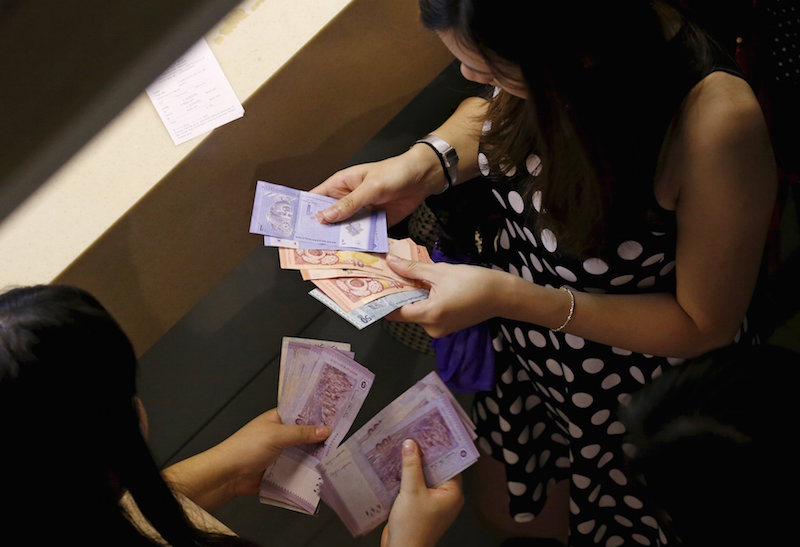KUALA LUMPUR, April 10 — Staff in government-linked corporations (GLCs) and multinational companies (MNCs) tend to have more savings and are better prepared than typical private sector workers if Malaysia is further locked down to contain Covid-19, according to a poll.
In a special online survey to examine the effects of the Covid-19 pandemic on the economy and Malaysians, the Department of Statistics Malaysia (DOSM) polled 168,182 respondents throughout the country.
Malaysia is currently at the tail-end of a four-week movement control order (MCO) in which all non-essential activities must temporarily pause, and the government has unveiled an economic stimulus package to stave off the financial pain including through cash handouts to lower-income Malaysians or by providing wage subsidies to employers.
Malaysians are anticipating news today on whether the government will extend the MCO for a second time to help the nation slow the spread of Covid-19.

Are Malaysians ready pocket-wise for MCO Round 3?
While the DOSM’s survey results carried a disclaimer that limited the findings to its respondents and were not indicative of the general public, they nevertheless provided insight into how financially prepared Malaysians might be.
While 37.5 per cent of the respondents were civil servants, they were excluded from DOSM’s analysis of the respondents’ financial readiness to face an extended MCO.
“The majority of workers are not ready if the Movement of Control Order is extended except for employees in GLCs and MNCs,” the DOSM report stated.
Those who said they are ready financially for the possible extension include 63.8 per cent of MNC employees polled, 55 per cent of GLC staff, 34.9 per cent of private employees, 28.7 per cent of employers, and just 18.1 per cent of self-employed.
On the flip side, those who felt they did not have the finances to last the period were 81.9 per cent of self-employed polled, 71.3 per cent of employers polled, 65.1 per cent of private employees, 45 per cent of GLC staff and 36.2 per cent of MNC staff who responded to the survey.
What about a total lockdown?
DOSM observed a similar trend from the responses to the survey in the event of a total lockdown akin to the enhance MCO, stating: “Only MNC employees and GLC employees are more prepared financially if a Total Lockdown is implemented respectively at 74.9 per cent and 73.5 per cent.”
As for the rest, 63.1 per cent of private employees polled, 49.6 per cent of self-employed polled, 48.9 per cent of employers in the survey said they were prepared with their existing finance sources if Malaysia is placed in total lockdown.
Level of rainy-day funds
When polling respondents on their savings, the DOSM report found that the majority of GLCs and MNCs employees polled tend to have more funds to last longer compared to the majority of other respondents in the private sector.
By aggregating respondents with the lower range of savings for each category, the DOSM survey found that over two-thirds or 71.4 per cent of self-employed respondents only have enough saved for a range of less than two weeks to up to one month.
Using a similar aggregate, the DOSM report found that 77.2 per cent of employers and 82.7 per cent of private employees have savings for up to two months, while 78.9 per cent of GLC staff and 75.2 per cent of MNC employees had enough for up to four months.
The DOSM survey also found that the level of savings of respondents are also affected by how long they have been working, noting as example that 69.7 per cent of those who worked less than a year and 63.2 per cent of those who worked for one to three years only have savings for less than a month of expenses.
DOSM’s first round of its special survey titled “Effect of Covid-19 on the Economy and Individual” was carried out online from March 23 to March 31, with respondents being those aged 15 and above.
The MCO in Malaysia was first announced for the two-week period of March 18 to March 31, but it was extended to continue on for another two weeks to April 14.
In the DOSM survey findings, civil servants form the largest group of the 168,182 who responded to the online poll at 37.5 per cent, with the next largest group being private employees at 21.5 per cent, unemployed at 21 per cent, self-employed or own account worker at 11.7 per cent, GLC employees at three per cent, employers at 2.9 per cent, MNC staff at 1.4 per cent and unpaid family workers at one per cent.
Respondents who are civil servants were not included in all the analysis presented by DOSM in its report.
The DOSM has cautioned that the survey findings should be interpreted with caution to assess the impact of Covid-19 in Malaysia, noting that the responses by the poll respondents should not be taken as official statistics but can be used to support in reflecting the current situation.



















